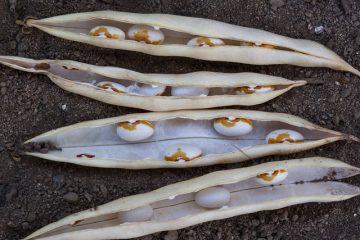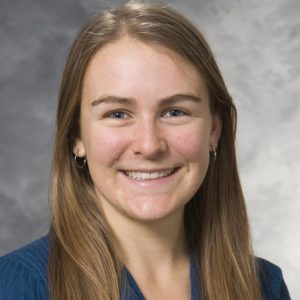Event Details
- Start: 10 June 2019 11:00 am
- End: 10 June 2019 12:30 pm
- Categories: Future of Food Global Dialogue Series
Cluster Hire in LFS Applied Biology, Sustainable Agriculture and the Environment, and CSFS at UBC Farm
Research Seminar: Diversifying Seed Systems
Dr. Claire Luby
Faculty Associate
Department of Horticulture
University of Wisconsin-Madison
Click here to fill out the Feedback Form for Dr. Claire Luby’s campus visit

Plant breeding can uniquely diversify agricultural systems to respond to varying environmental and social contexts, an essential component of climate change adaptation. However, many modern plant varieties were not developed to succeed in low input agroecological systems, meaning farmers growing in these systems do not necessarily have varieties adapted to their contexts. Combining field-based and molecular genetic research methodologies with the input of local communities, I study how plants adapt to unique agricultural environments. My recent projects have included studying the effect of intellectual property rights on plant genetic diversity, exploring the genetics of carrot domestication, and developing community partnerships with regional Indigenous communities to rematriate historic plant varieties. These projects have the overarching goal of diversifying seed systems. At the University of British Columbia, I would expand these research objectives by collaborating across the research spectrum to develop participatory networks of growers with the goal of diversifying seed systems.
When and Where?
- June 10, 2019 from 11:00 a.m. to 12:30 p.m.
- MacMillan Building, Room 258
About the Presenter

Dr. Claire Luby, University of Wisconsin Madison
Dr. Claire Luby is a Faculty Associate in the Department of Horticulture at the University of Wisconsin-Madison. Her research uses plant breeding to diversify agricultural systems, focusing specifically on seed propagated vegetable crops. This research has implications for enhancing seed and food sovereignty, making agricultural systems more resilient in the face of climate change, and improving human health. In her role as an educator, she seeks to help students use systems-thinking to translate what they learn in the classroom and field into creative scientific and community-based approaches to solve agricultural challenges. In addition to her teaching and research, she has applied her community-engaged scholarship to the development of three organizations: The Open Source Seed Initiative (OSSI), The Student Organic Seed Symposium, and the Society of Organic Seed Professionals.
This seminar is part of the LFS Applied Biology Faculty Cluster Hire in Sustainable Agriculture and the Environment. Ten short-listed candidates will be giving seminars in May and June as part of their intensive interview process. Click here see a full list of events.